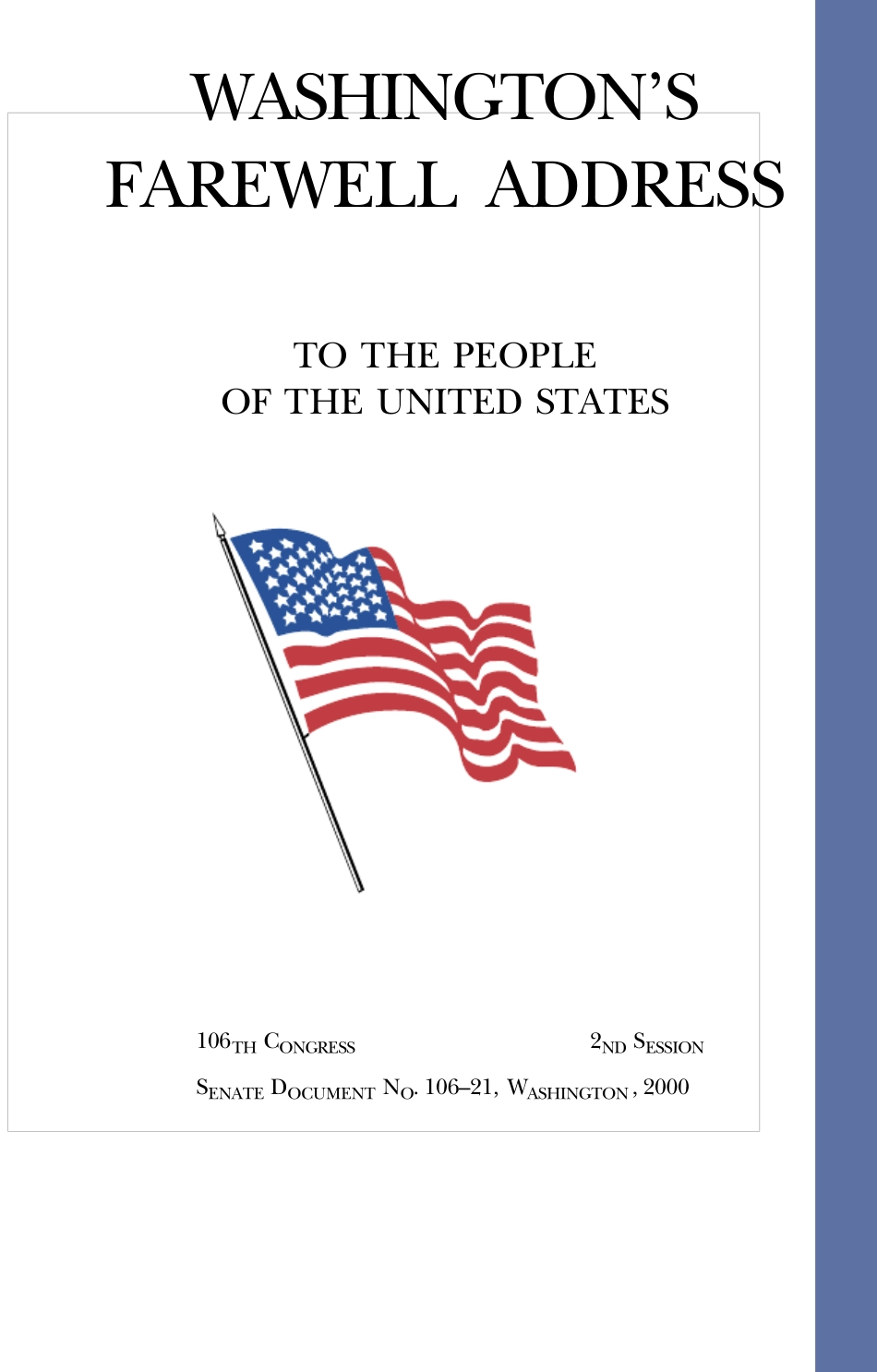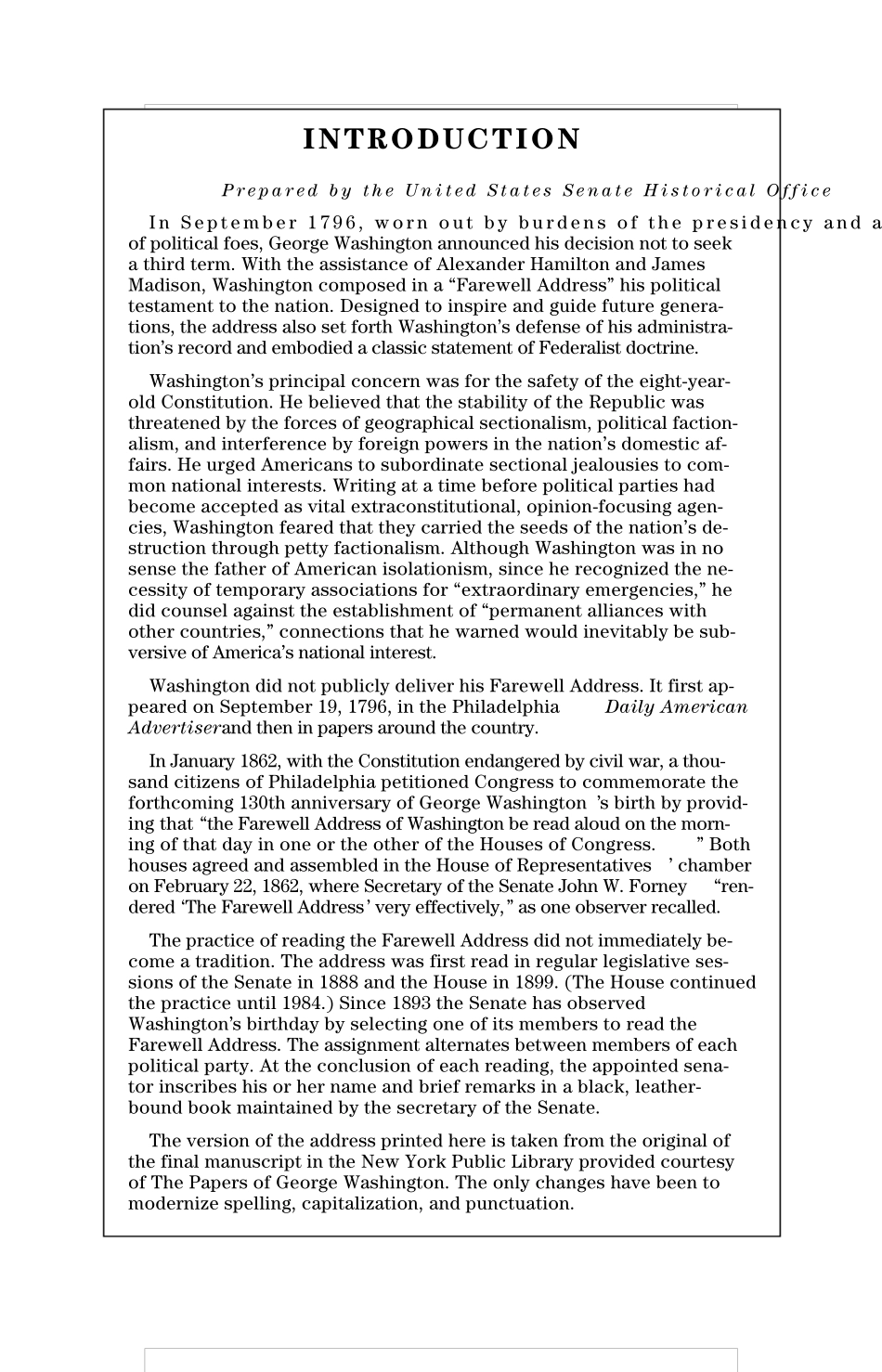WASHINGTON’SFAREWELL ADDRESSTO THE PEOPLE OF THE UNITED STATES106TH CONGRESS2ND SESSIONSENATE DOCUMENT NO. 106– 21, WASHINGTON, 2000For sale by the Superintendent of Documents, U.S. Government Printing OfficeInternet: bookstore.gpo.gov Phone: (202) 512–1800 FAX: (202) 512–2250Mail: Stop SSOP, Washington, D.C. 20402–0001WASHINGTON’SFAREWELL ADDRESSTO THE PEOPLE OF THE UNITED STATES106TH CONGRESS2ND SESSIONSENATE DOCUMENT NO. 106– 21, WASHINGTON, 2000INTRODU CTIONP r e p a r e d b y t h e U n i t e d S t a t e s S e n a t e H i s t o r i c a l O f f i c eI n S e p t e m b e r 1 7 9 6 , w o r n o u t b y b u r d e n s o f t h e p r e s i d e n c y a n d a t t a c k s of political foes, George Washington announced his decision not to seek a third term. With the assistance of Alexander Hamilton and James Madison, Washington composed in a “Farewell Address” his political testament to the nation. Designed to inspire and guide future genera-tions, the address also set forth Washington’s defense of his administra-tion’s record and embodied a classic statement of Federalist doctrine.Washington’s principal concern was for the safety of the eight-year-old Constitution. He believed that the stability of the Republic was threatened by the forces of geographical sectionalism, political faction-alism, and interference by foreign powers in the nation’s domestic af-fairs. He urged Americans to subordinate sectional jealousies to com-mon national interests. Writing at a time before political parties had become accepted as vital extraconstitutional, opinion-focusing agen-cies, Washington feared that they carried the seeds of the nation’s de-struction through petty factionalism. A...


